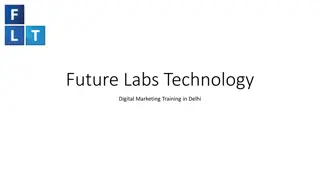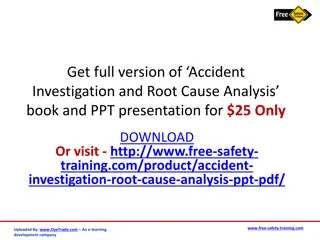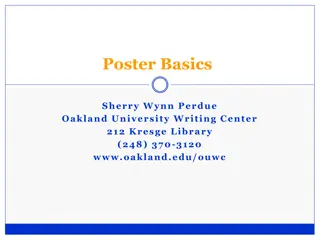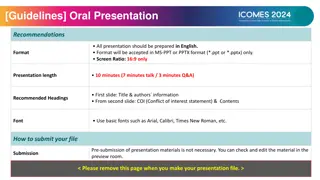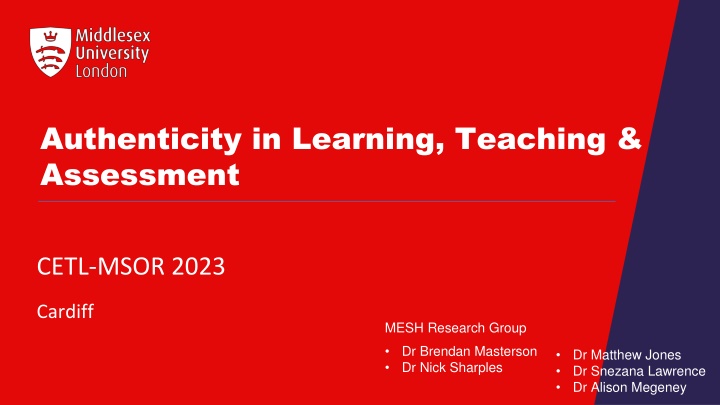
Enhancing Mathematics Education with Innovative Pedagogies at Middlesex University
Explore how Middlesex University is transforming mathematics education through innovative pedagogies, authentic assessments, inclusivity, and technology integration. Learn how they are empowering students to develop essential problem-solving skills and bridge the gap between academia and industry tools.
Download Presentation

Please find below an Image/Link to download the presentation.
The content on the website is provided AS IS for your information and personal use only. It may not be sold, licensed, or shared on other websites without obtaining consent from the author. If you encounter any issues during the download, it is possible that the publisher has removed the file from their server.
You are allowed to download the files provided on this website for personal or commercial use, subject to the condition that they are used lawfully. All files are the property of their respective owners.
The content on the website is provided AS IS for your information and personal use only. It may not be sold, licensed, or shared on other websites without obtaining consent from the author.
E N D
Presentation Transcript
Authenticity in Learning, Teaching & Assessment CETL-MSOR 2023 Cardiff MESH Research Group Dr Brendan Masterson Dr Nick Sharples Dr Matthew Jones Dr Snezana Lawrence Dr Alison Megeney
SIGNATURE PEDAGOGIES Middlesex University's signature pedagogies place an emphasis on: Active, practice-based learning; The university has mandated the removal of all exams. Exams are to be replaced with authentic assessment. Inclusive learning through technology.
SIGNATURE PEDAGOGIES IN MATHS At the point of revalidation of our undergraduate maths programmes we removed exams. Goal was to focus more on continuous authentic assessment and learning. A greater emphasis placed on employability skills which maths students traditionally lack such as communication skills. Technology platforms were also integrated into assessment and learning to help bridge the digital divide.
OUR STUDENTS The demographics of the MDX students have particular difficulties: 60.6% of Full-Time Undergraduates are from IMD quintile 1 or 2 (latest 2021-22 OFS data) 41.2% were eligible for free school meals (latest 2021-22 OFS data) Digital poverty presents a significant obstacle to success for our students.
THE COMMON PLATFORM We loan our students with iPads and Apple pencils for the duration of their degrees. The common platform is used by staff and students and fully integrated into classes. Knowing each student has access to identical hardware and software has allowed us to innovate in assessment
WHAT IS A PROFESSIONAL MATHEMATICIAN?
PROBLEM SOLVING Maths graduates have a reputation for excellent problem solving skills. However, these skills are often developed through abstract but well defined problems. Professional mathematicians are, on the other hand, are expected to use these problem solving skills to solve vague problems with real world data. It is important to bridge this disconnect and present students with contextualised problems with no obvious solution.
INDUSTRY TOOLS An authentic approach to learning dictates that students should learn material in a way that replicates the way in which would allow them to become familiar with real world problems. One way to facilitate this is to build in industry standard tools in to the curriculum. On our undergraduate maths programmes we have decided to use RStudio Server throughout our probability and statistics modules. ENGAGING WITH MATHS ONLINE
AUTHENTIC ASSESSMENT AND PROBLEMS
AUTHENTIC ASSESSMENT Is realistic; Requires judgement and innovation; Ask's students to 'do' the subject; Replicates or simulates the contexts in which adults are 'tested' in the workplace; Assesses the student's ability to efficiently and effectively use a repertoire of knowledge and skills to negotiate a complex task; Allows opportunities to rehearse, practice, consult resources, and get feedback.
AUTHENTIC ASSESSMENT Across the maths programmes students are given options on the format in which they can submit their coursework. These include: Traditional written coursework; Written discussion; Multimedia presentations. This flexibility reduces the need for reasonable adjustments. It also allows students to enhance important employability skills such as creativity and communication.
AUTHENTIC PROBLEMS An authentic problem is a problem which is a problem which is similar in format and context to the kind of task a student can expect in the workplace. These types of problems are distinct from 'applied' problems. Authentic problems are: Often vaguely defined; Allow students to use every tool at their disposal; Encourages students to seek guidance from their lecturer.
WHAT THE STUDENTS SAY Being forced to think more creatively when trying to formulate a solution and becoming more patient when doing so has helped me not only in a professional setting but it has also helped me in a day to day basis also. The variety of complex topics I came across throughout the degree helped me become more adaptable when being introduced to new topics professionally.
PROBLEM SOLVING FROM 2022 Students choose one vague prompt. Submission is report and presentation (worth 15 credits). Worked on in timetabled workshops with guidance and support from lecturers.
MATHEMATICAL STATISTICS Problem of interest to the student Explicit human judgement Open-ended brief, but o Guidance on expected content o Guidance on epistemic links o Refer to our shared body of theory (not ChatGPT s!) Multiple contact points while completing assignment Bespoke follow-up question: o Authentic! Graduates will work with clients. o Avoid solved questions on e.g. Kaggle datasets Compare with ChatGPT output. o Authentic! Interviewees will need to demonstrate what they can offer over Ai.
MULTIVARIABLE CALCULUS Problem of interest to the student Explicit human judgement Open-ended brief, but o Guidance on expected content Multiple contact points while completing assignment
MULTIVARIABLE CALCULUS Let s try a banana: Bananas are curved. Let s say the curve is a cubic. Bananas can be sliced into circles. o Find the tangent plane to the curve. o Vary the radius of the circles.
MULTIVARIABLE CALCULUS Further questions relate to the student s object of interest. Guide students to trusted tools (WolframAlpha) Bespoke follow-up question: o Authentic! Graduates will work with clients. Compare with ChatGPT output. o Authentic! Interviewees will need to demonstrate what they can offer over Ai.
LARGER MODULES Exams are inauthentic but incredibly time-efficient! Lecturers as project managers would require an investment of staff time. Received wisdom: exams are 10 times faster to mark than to sit. 180 minute exam 120 minute exam + 6 minute viva 60 minute exam + 12 minute viva 3 times 6 minute vivas 18 minutes per student
FINANCIAL DATA ANALYSIS Service module with 120 students Previous assessment: 2 hour exam Section A Section B Closed, prescriptive questions. Little problem solving. (12 minutes to mark!) Our pitch for next year: hybrid Section A: exam conditions/coursework. Closed questions. (still with 12 minutes to mark!) Section B: 6 minute viva. Less prescriptive, problem solving questions.
AUTHENTIC LTA Authentic assessment: uses formats typical of professional environment Authentic problems: real world o Messy o Vague o Open-ended o Support by others (have multiple contact points during assessment) o Dynamic (use bespoke follow-up questions) o Not just applied Guide students on o expected content (to satisfy LOs) o explicit links to theory (to avoid LLM reliance) Actively compare results to LLMs this is an authentic real-world problem!
QUESTIONS? MESH Research Group Dr Brendan Masterson b.masterson@mdx.ac.uk @BrendanMasters4 Dr Nick Sharples n.sharples@mdx.ac.uk @nick_sharples Dr Matthew Jones matthew.m.jones@ucl.ac.uk s.lawrence@mdx.ac.uk @doc_jones1 Dr Snezana Lawrence @snezanalawrence Dr Alison Megeney a.megeney@mdx.ac.uk @DrAliMegs








